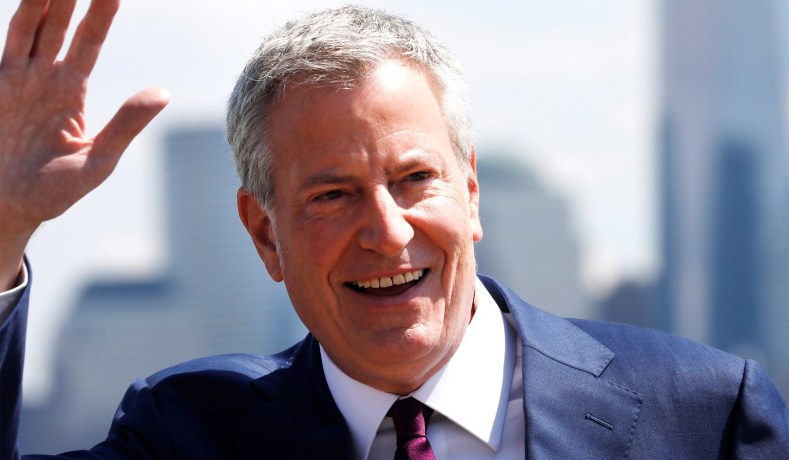New York City, May 17 – New York City Mayor Bill de Blasio is currently in charge of America’s largest city, and now he is running for President. As mayor of NYC, he represented 455,000 working-age people with disabilities in the city, as nearly half of all working-age New Yorkers with disabilities live in the greater New York City metropolitan area.
According to Vice, “Commissioner Victor Calise is working on making New York ‘the most accessible city in the world.’” And the de Blasio administration has taken some concrete steps to move New York closer to that goal. But as the article’s title suggests, the city has a long way to go.
Under Mayor de Blasio, the city has launched NYC ATWORK: a successful program to provide resources and opportunities to job-seekers with disabilities. This effort is overseen by the Mayor’s Office for People with Disabilities, led by Commissioner Victor Calise. NYC ATWORK helps connect people with disabilities looking for jobs and businesses looking to hire qualified individuals. The Mayor’s office is also behind Project Open House, which “removes architectural barriers in the homes of people with permanent disabilities.”
In February, De Blasio proposed adding $300 million to the city budget for special education services. According to Chalkbeat, “The city has historically struggled to provide special education services to all of the 224,000 students who have disabilities, a population larger than Houston’s entire school system. The city has acknowledged that roughly a quarter of those students don’t receive all of the services listed on their individual learning plans.”
New York City also has been criticized for its lack of accessibility in public transportation, something necessary for individuals with disabilities to traverse the city. In fact, only a quarter of NYC subway stations have elevators.
Campaign Launch Misses The Mark On Accessibility
For a presidential campaign to be fully inclusive of people with disabilities, it needs to meet the following requirements: (1) offer captioning with every video it shares or produces, (2) mention people with disabilities and their issues, (3) depict people with visible disabilities in its media, (4) reach out to the disability community, and (5) provide accessible campaign events and website.
De Blasio’s campaign launch video relies on YouTube’s auto-captioning, which often contains errors. Some videos on his social media profiles do not have captions at all. Without accurate captions on all video content, people who are deaf or hard of hearing are being left out of the campaign. None of the photos on De Blasio’s website have alt-text, which means that visitors who use screen readers will not know what is in the photos.
Additionally, while the campaign launch video shows diverse people from many backgrounds, nobody with a visible disability is featured in the video. And de Blasio has not gone out of his way to target people with disabilities with his message thus far.
When analyzing polls, it is integral to identify the participants’ demographics and determine where the candidate stands with swing voters. One important group of swing voters are people with disabilities, who comprise 20 percent of our country’s population. And more than half of Americans have a loved one with a disability. A recent survey shows that fully three-quarters of likely voters either have a disability themselves or have a family member or a close friend with disabilities. Thus, if Mayor de Blasio wants to succeed in his campaign, he must represent all Americans, especially those with disabilities.
Voter research conducted by RespectAbility shows how disability issues connect to all aspects of American life. It is in the best interest of every presidential candidate and the citizens of this country for candidates to recognize disability issues during their campaigns.
“Candidates for office ignore the disability community at their peril,” said former U.S. Representative and Dallas Mayor Steve Bartlett. Bartlett, who was a primary author of the Americans With Disabilities Act of 1990, is the board chair of RespectAbility. “People with disabilities are politically active swing voters, and candidates should take note of the important issues they care about.”

[…] Bill de Blasio […]